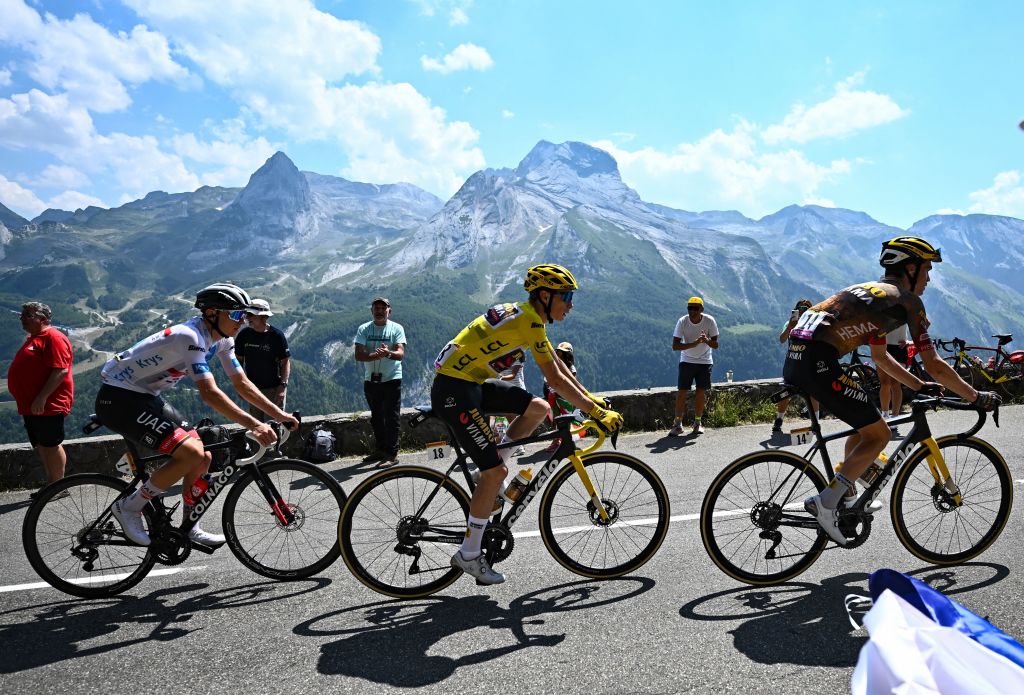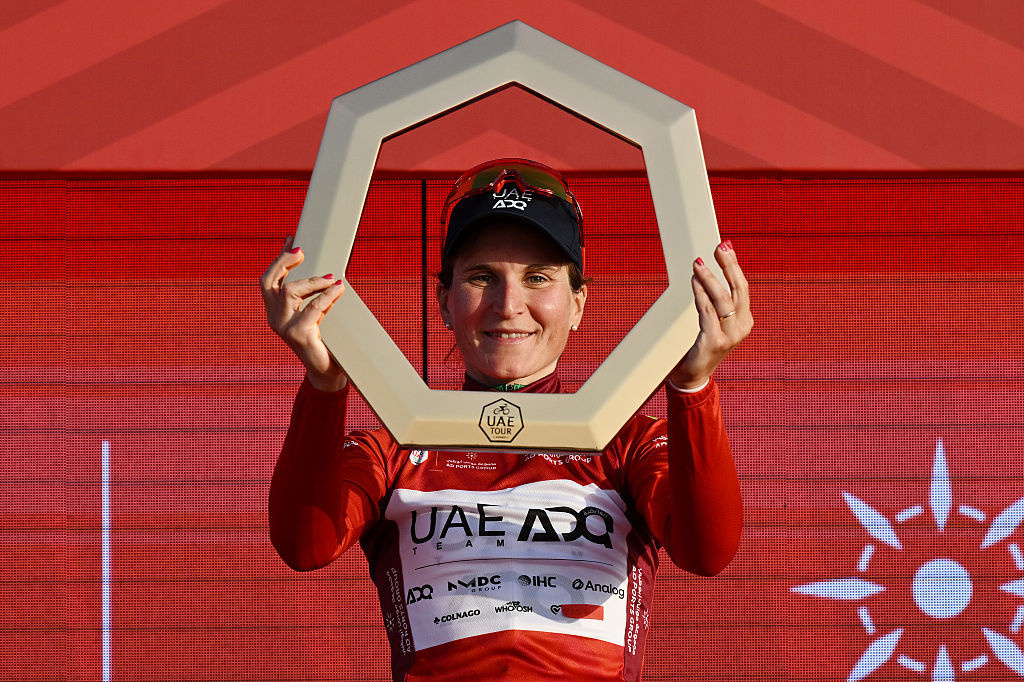'Hautacam is probably the hardest climb in the Pyrenees' – Dan Martin predicts major fireworks in opening Tour de France mountain stage
Long wait for mountains will make this year's climbing much tougher, says former Tour stage winner

The latest race content, interviews, features, reviews and expert buying guides, direct to your inbox!
You are now subscribed
Your newsletter sign-up was successful
Former champion rider Dan Martin has ample experience in winning - and suffering - in the Pyrenees, both in the Tour de France and other top races, and the Irishman is convinced that the design of this year's Tour route will make the opening round in the high mountains even harder and more damaging than usual.
Martin not only believes that Hautacam, the first high mountain summit which awaits the Tour on Thursday, is "the hardest single climb in the Pyrenees." However, as Martin also points out, the positioning of the first of the Tour's most difficult climbs deep in the second week will make it much more difficult for riders to adapt – cue extra suffering, potentially big-time.
"It's an interesting one, we've got three hard days back-to-back," Martin, himself a winner of a brutal Tour de France Pyrenean stage featuring four category 1 climbs back in 2013, told Cyclingnews.
"So are they going to want to go all out on Hautacam because they've got the TT on the next stage, or is it going to be all out every day?"
Now a Tour de France 'stage finish' ambassador for ASO, Martin sees stage 12's finish at Hautacam as the ideal finale for all-out attacks because "It's such an irregular climb, with so many changes of gradient and pace, that being on a teammate's wheel is not really that much help at all."
"Superbagnères" – where Martin recalls taking the lead in one of his earliest stage race victories, in the Route du Sud in 2008, most likely the last time any bike race tackled the climb – "is much steadier. You can get into a rhythm quite easily. But Hautacam - that's a real attacking climb.
"It's a shorter stage, too, so they'll be fresher. By the time you get to Saturday, you'll have two hard days in the legs, and that counts as well. That extra effort takes away some of the riders' explosivity."
The latest race content, interviews, features, reviews and expert buying guides, direct to your inbox!
The other big factor that will make a difference on stage 12's opening incursion into the mountains, Martin says, is the switch from the flatter terrain to much longer climbs after such a long spell on the flat or shorter ascents.
Stage 10 was extremely hilly, with over 4,000 metres of elevation gain, but its hardest climb was rated second-category, whereas Thursday's stage contains a first-category climb of the Soulor, then the HC-rated Hautacam.
Not only that, Martin points out, stage 12 is a comparatively late date in the race for the high mountains to put in an appearance for the first time, rendering the potential for damage that much higher.
"The change is more physical than psychological, we're at Wednesday now," Martin says "Obviously, we had a hard day the other day [stage 10]. But it's not climbing like the Pyrenees."
"So if we say the riders' last hard mountains training ride was the Sunday and Monday before the Tour at the latest, then they were going onto Lille. So for two weeks, they have not been pushing power for long periods of time on the small chainring, and that takes a toll on the body."
Martin says that he has even spoken to a couple of riders who opted to go flat out in the Caen time trial on stage 5, not because they necessarily thought they were going to win, but because up to now in the Tour, it was their only way of imitating the kinds of efforts, in part, that they would need in the high mountains.
"It is in a bigger gear and you need different muscles in a time trial and on a climb, you're not as aero, you're not sitting as much, you're just trying to create as many Watts as possible," he explained. "It's a very different way of pedalling compared to 50kph on the big chainring.
"But if they hadn't gone all out in the time trial, they wouldn't have done a 30-minute threshold effort for weeks. So, at least, in that way, this was almost like a training ride for the mountains."
In terms of the GC battle, with Tadej Pogačar holding around a 1:15 advantage on arch-rival Jonas Vingegaard, while trailing Ben Healy by 29 seconds, Martin believes that the Slovenian can be defensive if he wants. Plus, as he points out, Pogačar is "probably the best rider in the world for counter-attacking, too."
"So that'd be my tactic if I were him. Pavel Sivakov didn't look himself, on stage 10, but I expect him to be back" – something Sivakov said himself was the case after stage 11.
"But going forward, I think UAE's performance on stage 10 in the Massif Centrale was amazing, they almost matched Visma."
"OK, Visma had Simon Yates up the road, so it's hard to tell in full, but with somebody as strong as Tadej, if you can get him to the last climb, he's fine anyway. And if he wants to make it just about him and Jonas, Tadej can make that happen quickly, too.
Not that Pogačar is in the lead, or not yet. As a compatriot of current yellow jersey Ben Healy and a former rider in a previous iteration of the EF Education-EasyPost squad, Martin is hugely impressed with how the Irishman has raced so far, too.
Speaking before stage 11, he said, "Today [Wednesday] is not as easy, but I hope he keeps the yellow" – which Healy duly did – "but either way it's just unreal. When he won that stage [in the first week], it was already, 'How did that happen? What a ride.'"
Martin and Healy have some important family connections as well, and not just because Martin's uncle, Stephen Roche, was the last Irishman to wear yellow before Healy.
"My dad, too, was his director when he was a junior in 2018. There are so many similarities between us. I went to see Ben at the podium, and to see him in yellow, it's unreal."
Not only that, but Martin was a key part of EF for many years, and, despite now being retired, he is full of pride that the squad continues to race so well in the Tour.
"That team played such an important part in my life, my career, to see how it keeps fighting and they find a way to be successful, somehow, despite the constraints…. I think it comes down to their spirit and the way they've always looked at the sport in a slightly different to the ways other teams do."
And right now, of course, and no matter what happens in the Hautacam on Thursday, Healy is reaping the benefits of that 'out-of-the-box' attitude in full.
The Tour de France is the biggest race in cycling, and a Cyclingnews subscription offers you unlimited access to our unrivalled coverage. Get all the breaking news and analysis from our team on the ground in France, plus the latest pro tech, live race reports, and a daily subscriber-only newsletter with exclusive insight into the action. Find out more.
Alasdair Fotheringham has been reporting on cycling since 1991. He has covered every Tour de France since 1992 bar one, as well as numerous other bike races of all shapes and sizes, ranging from the Olympic Games in 2008 to the now sadly defunct Subida a Urkiola hill climb in Spain. As well as working for Cyclingnews, he has also written for The Independent, The Guardian, ProCycling, The Express and Reuters.
You must confirm your public display name before commenting
Please logout and then login again, you will then be prompted to enter your display name.

